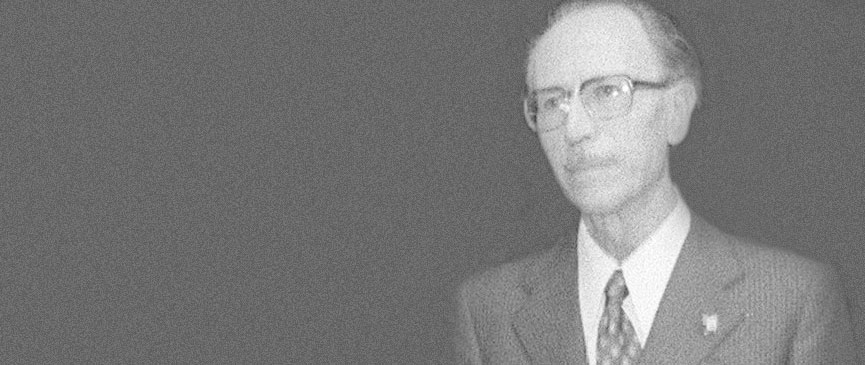You are in:
Laureates
Start of main content
Alberto Sols García
Prince of Asturias Award for Technical & Scientific Research 1981

Pioneer and prime mover of Spanish Biochemistry, Alberto Sols (Sax, Alicante, Spain, 1917 – Denia, Alicante, Spain, 1989) is the fundamental merit of the outstanding international position which Spain has reached in the field of Biochemistry. The trainer of various generations of researchers, he was always preoccupied by the conditions in which academic work takes place and by the ethical aspects of research activity.
He was awarded his Doctorate in Medicine in 1946, subsequently moving to Barcelona to begin his professional career as a clinical analyst and as an assistant teacher for the Chairs of General Physiology and Physiological Chemistry at the University of Barcelona.
In 1951, he obtained a grant to extend his studies and moved to the United States, where he spent three years working in the Washington Institute of Saint Louis, Missouri, beside the couple of researchers formed by Carl Cori and Gerty Cori. There, he performed various studies on "hexokinase", the enzyme which conditions the energy metabolism of the brain.
In 1954, he returned to Spain and began his research at the Institute of Physiology of the Complutense University of Madrid. Two years later he moved to the newly- inaugurated laboratories of the Higher Council for Scientific Research (Consejo Superior de Investigaciones Científicas), where he had somewhat better means at his disposal and was able to carry out his studies, among which his researches into the enzymology of the metabolism of carbohydrates and metabolic regulation are worthy of note.
Sols received the Francisco Franco Award for Science in 1957 for his work Fosforización enzimática y transporte activo de azúcares, an important contribution to the treatment of diabetes.
In 1963 he took part in founding the Spanish Biochemistry Society, which he chaired for five years, then passing on to directing the National Biochemical Committee until 1972. In 1969 he took charge of the Biochemistry Department of the faculty of Medicine of Madrid and in 1976 was appointed Professor of Biochemistry of the Autonomous University of Madrid.
Winner of the Juan de la Cierva Award and the Ramón y Cajal National Research Award, Alberto Sols wrote various books about his speciality, among which figure Nuevo sistema de análisis calorimétrico and Regulación metabólica y acción enzimática. He also published more than a hundred works in specialist journals.
Doctor honoris causa of the Universities of Santander, Barcelona and Alicante and honorary lecturer at the Universities of Lima, Peru and Santiago de Chile, Chile, he was also the honorary chairman of the Institute of Enzymology and Molecular Pathology of the CSIC. He was also a holder of the Grand Cross of Alfonso X the Wise.
Sols died in Denia, a town in Alicante, on the 10th August 1989. The memory of his work has been glossed, in diverse tributes and publications, by his contemporaries, disciples and colleagues. Defined by Severo Ochoa as the "Don Quixote of Spanish biochemistry", he considered molecular biology as a scientific revolution with profound ethical implications.
End of main content
Sección de utilidades
Fin de la sección de utilidades
- Legal document Legal document (Access key 8)
- | Privacy policy Privacy policy (Access key )
- | Social networks ???en.portal.pie.menu107.title???
- | Cookies ???en.portal.pie.menu110.title???
- | Site map Site Map (Access key 3)
- | Contact Contact (Access key )
- | XHTML 1.0
- | CSS 2.1
- | WAI 'AA
© Copyright 2024. FUNDACIÓN PRINCESA DE ASTURIAS



